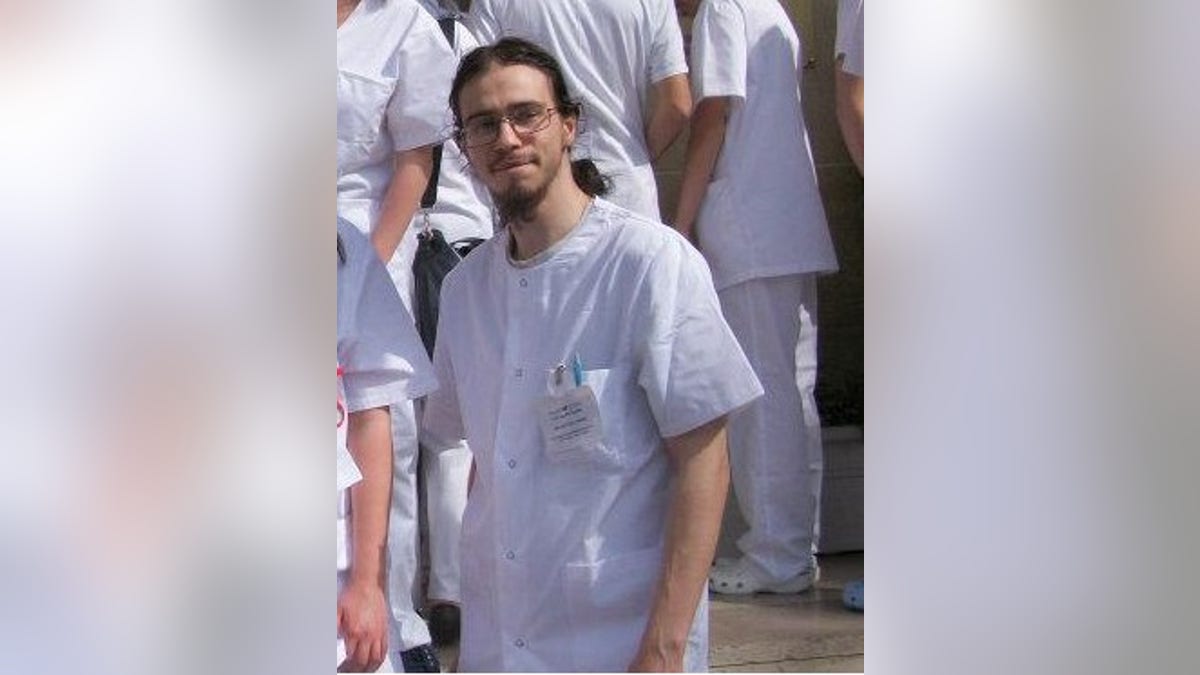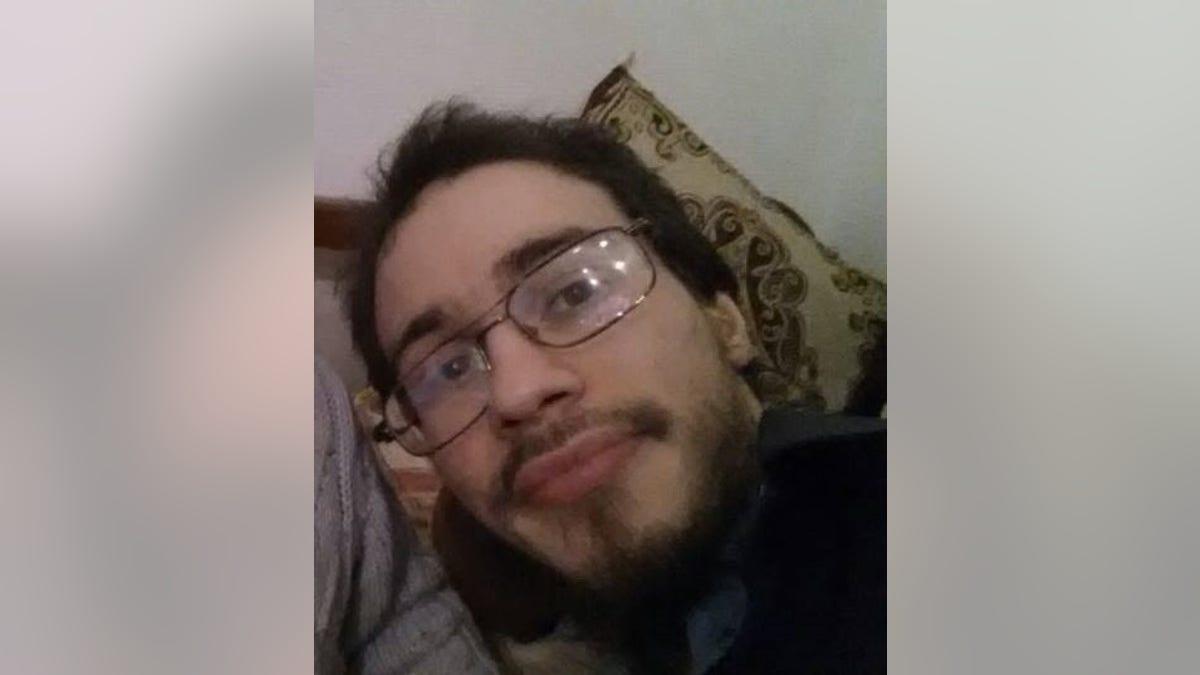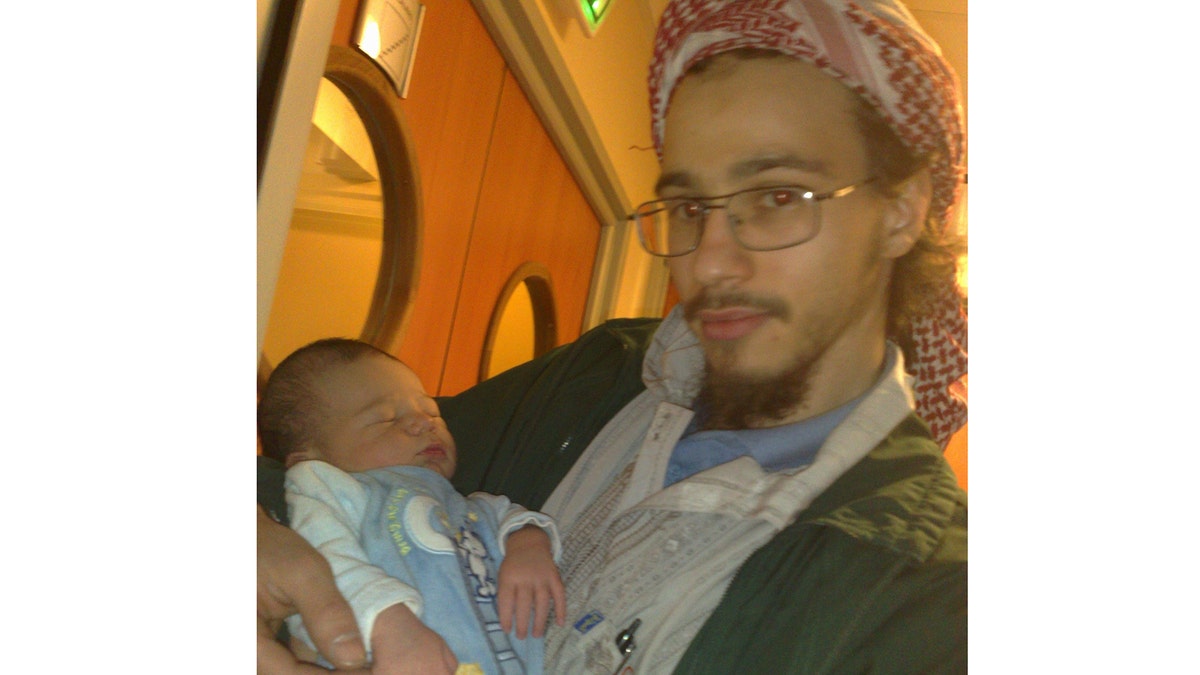Man who preached to Charlie Hebdo killers speaks out
Former recruiter Farid Benyettou was a preacher who sent the Charlie Hebdo killers on their path to jihad; senior foreign affairs correspondent Amy Kellogg reports.
Farid Benyettou is trying to rebuild his life. For a time, the 37-year-old Frenchman of Algerian descent was a popular Salafist preacher in Paris. He recruited jihadists to go to Iraq. And he was extremely close to Cherif Kouachi, one of the two brothers who massacred 12 people at the offices of the satirical weekly Charlie Hebdo in January 2015.
“It was more than a friendship. It was complicity,” Benyettou told Fox News. “We became confidants. At the time I met him, he already wanted to go to Iraq. He knew some guys from the neighborhood who had gone.”
But Benyettou said Kouachi in the end wavered about going to Iraq, and Benyettou was always there to shore him up. They jogged together, conspired together, until both were arrested in 2005.
The arrests occurred on the very day Kouachi was supposed to go to Iraq. He had his ticket and his plan. But police swooped in on both him and Benyettou instead. Benyettou explains that they were separated in prison.

Farid Benyettou at nursing school in 2014.
And they went very separate ways, along different paths.
“Deradicalization started for me in prison,” Benyettou said.
That in itself is a surprising statement. Prisons are notorious for being hotbeds of recruitment and Islamic extremism. Benyettou said despite “getting full respect in prison if you are a terrorist,” he tried to separate himself from his jihadist past.
“In prison, I studied and took up lots of activities, but really it was a pretext for meeting other people who didn’t have the same convictions as I did, nor even the same religion. It was something new for me. It opened me up,” he said.
The man who mentored the Paris attackers now is part of a movement to deradicalize jihadists. Experts say former jihadists like him are an important tool to deradicalize potential terrorists.
One of the other key factors in Benyettou’s deradicalization was the kindness showed to him by longtime Jewish neighbors who knew that he had done jail time and why, but who welcomed him into their home regardless.
Before his release in 2009, he decided he would turn his life around and become a nurse. Benyettou took up medical studies. As Benyettou started to leave radical Islam behind, he realized he would need to ditch the old crowd too if he was going to start a new chapter in his life.
But the process wasn’t linear, and the first person he contacted upon his release from jail was Cherif Kouachi, who had hardened in prison. Benyettou claims he tried and failed to deradicalize Kouchai, who reportedly received weapons training in Yemen and started to follow American-born cleric Anwar al- Awlaki. Awlaki, who was on a terrorist capture/kill list, was killed by an American drone strike in Yemen September 2011.

Farid Benyettou shortly after leaving prison in 2009.
Deradicalization expert Dounia Bouzar believes that even though Benyettou was not able to stop the Kouachi brothers, those like him who have been down the extremist path can be powerful examples for those under the influence of jihadist groups. Despite ISIS losing most of its geographic territory, the recruiters have not let up and are efficient at targeting young people who know very little about Islam.
“The less the young person knows about Islam, the better it works,” Bouzar said. “In France, we have 50 percent of people who knew nothing of Islam before becoming pro-Daesh (ISIS) in three months.” One 15-year-old girl from the French countryside tried to join ISIS in Syria three times and failed. The teenager said the recruiters made her numb.
"I became a real robot with no heart and no feelings," she said in an on-camera interview.
Benyettou claims he tried to talk Kouachi out of his ideology. Perhaps his attempts came too late. Perhaps they were half-hearted.
“I had tried to deradicalize Cherif during our last discussions, during the last time we saw each other at the end of 2014,” he said. “When I was talking to him, I was talking to myself at the same time.”
Benyettou admits he had his own doubts about leaving the path of jihad behind. He said one does not “get out” that easily. He was trying to convince himself, as much as Kouachi, that jihadism was the wrong path.
Still, he read between Kouachi’s hard lines. Benyettou somehow sensed Kouachi was evolving in his conversations, so the fact that he went on to carry out the Charlie Hebdo massacre with his older brother, Said Kouachi, was a complete shock.
Benyettou feels responsibility for his role even though Kouachi‘s journey had evolved with the guidance of other extremists.
“It is I who gave him the ideology,” he said. “Who encouraged him at a time, to go to Iraq. When he had doubts, he came to see me, and I would dissipate those doubts. I participated in some way.”
Benyettou, now a full-fledged repentant, sought out Dounia Bouzar, who has worked with thousands of young people caught under the spell of jihadist recruiters. He wanted to help her in her work. Bouzar told Fox that Benyettou has helped prevent 30 people from going to Syria, adding: “There is nothing stronger to deradicalize than a repentant who can speak about the ISIS lies.”
Giving those who have deradicalized credence is controversial, as many lie or slip back into extremism in the way an addict returns to bad habits. But Bouzar believes those who have experienced the lies and violence of organizations like ISIS are powerful tools for taking down the propaganda, which she says is increasingly tailor-made and frighteningly effective.

Farid Benyettou holding his nephew.
“ISIS looks into the profile of each young person and adapts its jihadist ideology according to the psychological and social profile of each. It touches everyone – rich, poor, Christian, Jew, atheist, Muslim, practicing and non-practicing. The less the person knows about Islam, the better it works.”
Bouzar says the online recruiters go for weak spots in individuals. If a woman has suffered violence, she will be told the men of ISIS will protect her. If someone has do-gooder instincts, they were told they could help children and orphans in Syria. But even now, with the so-called Caliphate been destroyed, the recruiters are keeping up their quest for vulnerable young people to whom they promise an ideal life under divine law, according to Bouzar.
“It is not that ISIS having lost its territories is less dangerous,” she said.
Bouzar explained that the brain washing involves making vulnerable young people believe that friends, teachers and relatives can no longer be trusted, that great powers like the United States and the Mossad have bought them all off, together with the media. Bouzar said kids come to believe that the narratives they have learned about the world are false.
“ISIS starts with an emotional approach to its subjects. It scares young people.”
Part of reversing that fear is getting families to steadily recall memories, tastes, and other sensations that gave their sons and daughters joy or comfort in youth. She believes extremists can in most cases be brought back from the dark side.
Benyettou finished his nursing degree but has been barred from practicing because of his past. He had been working at the same hospital many of the victims of the Charlie Hebdo attack were taken. He is distressed that he can’t put his training to use. Somewhat ironically, he is training to be a truck driver. He said that doesn’t interest him, but it is the only way he can figure to earn a wage.
Meanwhile France struggles to confront its significant extremist threat.
A recent European Union report revealed that France had an overwhelmingly higher number of jihadist arrests than other member states. Some estimates show that 19,000 people have radicalized in France and, of those, 2,000 are considered extremely dangerous. Twelve individuals convicted for involvement in terrorist attacks in France are scheduled for release 2020.
Fox News asked Benyettou why he thinks France has such a problem with Islamic extremism.
“I think today there is more and more of a feeling of discrimination and injustice and people are propelled towards these ideologies,” he said.
However, Benyettou added: “Whether they correspond to reality or not, that is another question, but the sentiments are there.”
He stressed that “people have to have felt some injustice to be ready to fall for ISIS propaganda.”
He said he lives with a certain amount of guilt and regret.
“We must not lose hope. You have in front of you someone who preached hate for years and who is responsible for many terrible acts and who has finally changed his ways,” he said.
Clean shaven and looking relaxed in a brown leather coat, Benyettou tried to be optimistic.
“You might think we are in a spiral which will never end, and will oblige us to forget about ourselves and accept much more security, and forget our values,” he said, “if I have a message to deliver in this dramatic situation which hopefully will not endure – it is to keep hope.”
Additional reporting by Cicely Medintzeff.









































